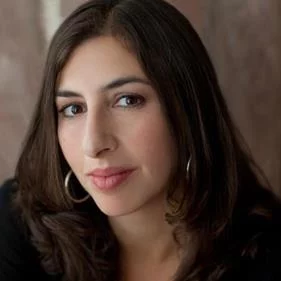“Nurture the Wow”: Q&A with Rabbi Danya Ruttenberg

Rabbi Danya Ruttenberg, educational consultant for Ask Big Questions, has just published a new book, ‘Nurture the Wow,’ about making parenthood the path to living fully, authentically and soulfully. Danya previously served as senior Jewish educator at Tufts Hillel and as campus rabbi at Northwestern Hillel. Hillel News sat down with Danya (and her 8 month old, Nomi) to chat about her new book. Here are highlights from that conversation.
Hannah Elovitz: Tell us about how this book came to be.
Danya Ruttenberg: When my oldest son was born (I now have three children), I was already a rabbi and had had a serious Jewish spiritual practice for a long time before that. And then I was suddenly having this whole new, strange, confusing, frustrating, wonderful heart-smashing experience of parenthood. And somehow it felt like there was a gap in my Jewish spiritual practice. I wasn’t seeing the experiences I was having as a parent – the new things that I was feeling, the challenges I was facing – addressed explicitly by my tradition. Let’s face it: most of the great thinkers in our tradition were not knee deep in the labor of child care. Somebody else, somewhere else, a little far off from the beit midrash (house of study) was loving and caring for these snuggly, crazy, short people, and being transformed through the work of doing so. So I started to try to fool around with building a bridge between the tradition and these new experiences I was having.
HE: What did you find?
DR: As I started to dig, I realized that Judaism has plenty to say about dealing with frustration, what it means to love and how to love, human connection and holiness, power and powerlessness. And what it means to live in a body, and all of the things that are part and parcel of having kids. Judaism has plenty to say about all of these things, and yet so often the texts that I knew weren’t connecting their wisdom explicitly to the work of raising children. So I decided to structure the book around three main ideas: Number one that the tradition has a lot to offer parents, and number two that parents have a lot to teach the tradition about what prayer is, what God is, what spirituality is and can be. And number three how parenting – the work of parenting – can be a spiritual practice in its own right. How, if you do the work of caring for and loving and raising and disciplining and cleaning up after your kids with the right set of intentions, it can transform you, transform your relationships with other people, transform your understanding of the world and your place in it, and transform your connection with the transcendent. I think if you go deep enough into your parenting it can take you everywhere so this book ultimately is really about that.
HE: Did anything surprise you?
DR: That’s a good question. I was maybe not surprised but really gratified to see how many aspects of the tradition really did have a lot to teach me. I was surprised how much my own relationship to Judaism shifted and transformed through this work and how much my own parenting of my own kids changed through hashing out some of these ideas. I mean, you spend your whole day writing about [philosopher Martin Buber’s idea of] I-Thou, what it really means to see another person in their wholeness and their fullness, and it changes how you handle the tantrum that afternoon. It might not change how you handle the tantrum the next day, but a spiritual practice is a practice. You have to work at it and come back to it again and again and again. And we forget, and then we have to remember again and again and again. But when we work the muscles of empathy, of connection, of reaching out, of intentionality, little by little those muscles get stronger and it changes us.
HE: How is this book connected to your work at Hillel?
DR: I think the book is really emblematic of the way we teach Torah at Hillel. It is very intentionally pluralistic, written really explicitly for people of all different Jewish backgrounds, observance levels, knowledge bases, comfort levels and ways of relating to the tradition. It’s also, I hope, going to be useful for non-Jewish parents who are interested in seeing things through a Jewish lens.
HE: What’s one nugget of wisdom from the book that you can share with us?
DR: In one of my favorite teachings from Maimonides, a medieval philosopher and legal commentator, he asks: What is the way to love and be in awe of God? He says to go out in the world, see all the amazing things that are inside creation, and you will feel awe and wonder. And then he says, as the sages said regarding love, ‘through this you will know the one that spoke and created the universe.’ So how you know God, he says, is through love, and that love is mixed with wonder and awe of that which is in the world. I think the love we have for our kids and the love we have for everyone in our lives is a portal to the infinite, a portal to the transcendent. And when we can go deep enough into that love and into that awe of the very fact of our beloved’s existence, it can change us.
“Nurture the Wow: Finding Spirituality in the Frustration, Boredom, Tears, Poop, Desperation, Wonder, and Radical Amazement of Parenting” is now available for purchase on Amazon.